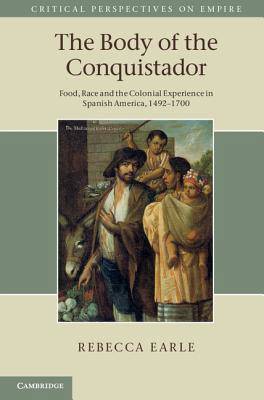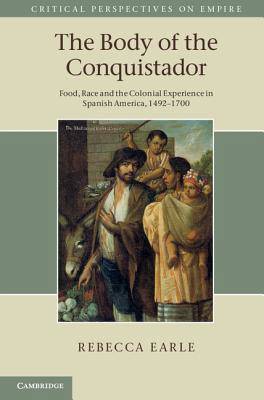
- Afhalen na 1 uur in een winkel met voorraad
- Gratis thuislevering in België vanaf € 30
- Ruim aanbod met 7 miljoen producten
- Afhalen na 1 uur in een winkel met voorraad
- Gratis thuislevering in België vanaf € 30
- Ruim aanbod met 7 miljoen producten
Zoeken
The Body of the Conquistador
Food, Race and the Colonial Experience in Spanish America, 1492 1700
Rebecca Earle
€ 93,95
+ 187 punten
Uitvoering
Omschrijving
This fascinating history explores the dynamic relationship between overseas colonisation and the bodily experience of eating. It reveals the importance of food to the colonial project in Spanish America and reconceptualises the role of European colonial expansion in shaping the emergence of ideas of race during the Age of Discovery. Rebecca Earle shows that anxieties about food were fundamental to Spanish understandings of the new environment they inhabited and their interactions with the native populations of the New World. Settlers wondered whether Europeans could eat New World food, whether Indians could eat European food and what would happen to each if they did. By taking seriously their ideas about food we gain a richer understanding of how settlers understood the physical experience of colonialism and of how they thought about one of the central features of the colonial project. The result is simultaneously a history of food, colonialism and race.
Specificaties
Betrokkenen
- Auteur(s):
- Uitgeverij:
Inhoud
- Aantal bladzijden:
- 278
- Taal:
- Engels
- Reeks:
Eigenschappen
- Productcode (EAN):
- 9781107003422
- Verschijningsdatum:
- 23/04/2012
- Uitvoering:
- Hardcover
- Formaat:
- Genaaid
- Afmetingen:
- 157 mm x 231 mm
- Gewicht:
- 566 g

Alleen bij Standaard Boekhandel
+ 187 punten op je klantenkaart van Standaard Boekhandel
Beoordelingen
We publiceren alleen reviews die voldoen aan de voorwaarden voor reviews. Bekijk onze voorwaarden voor reviews.











